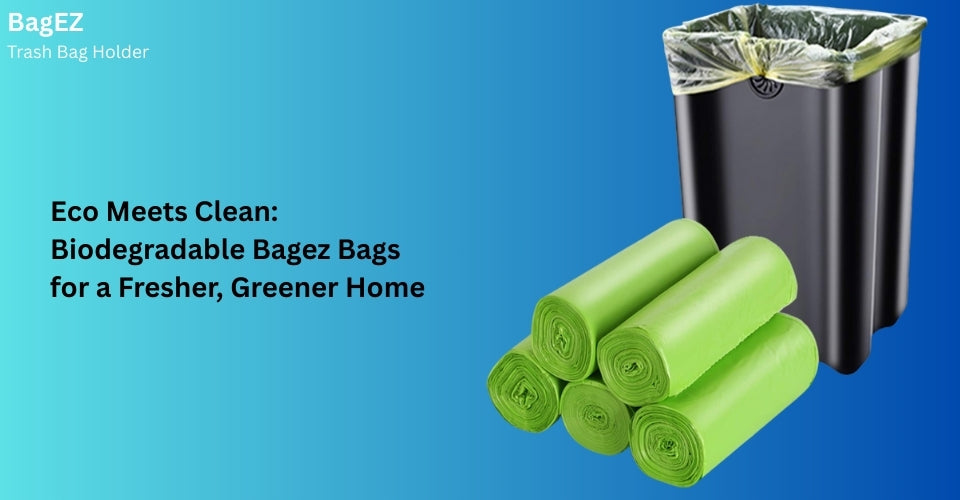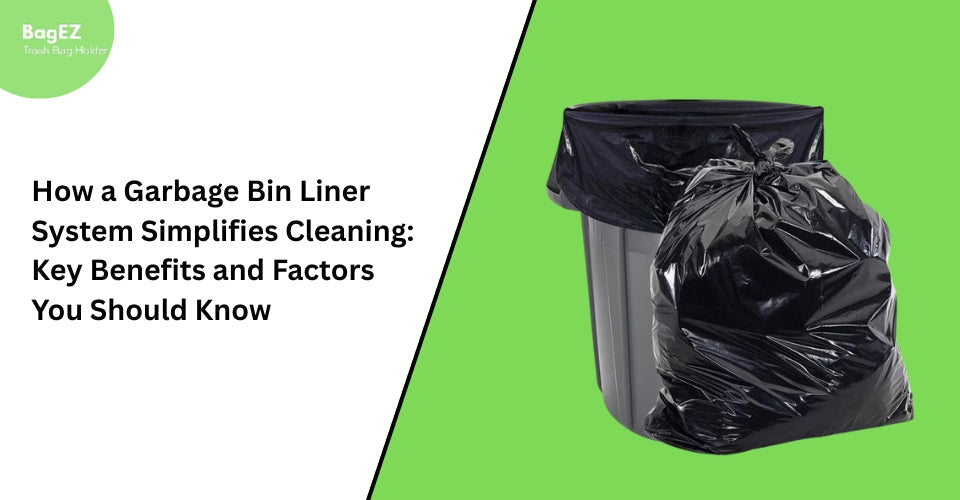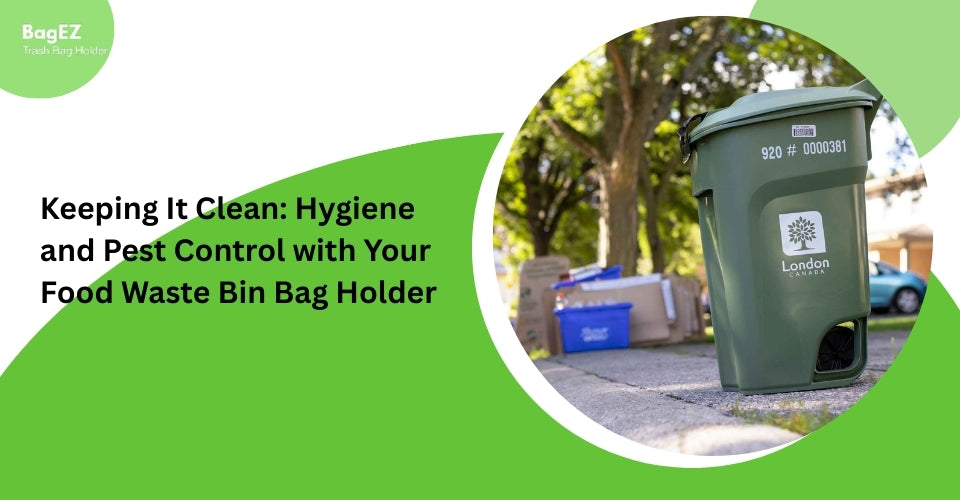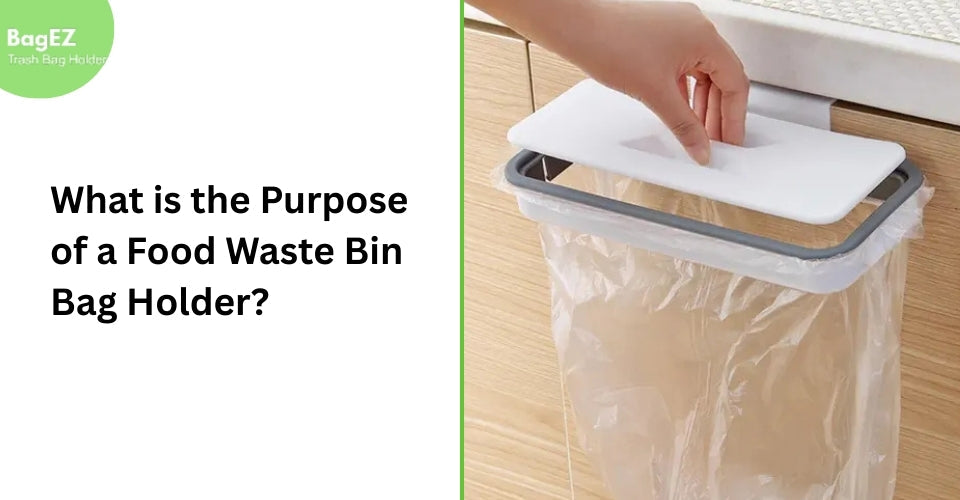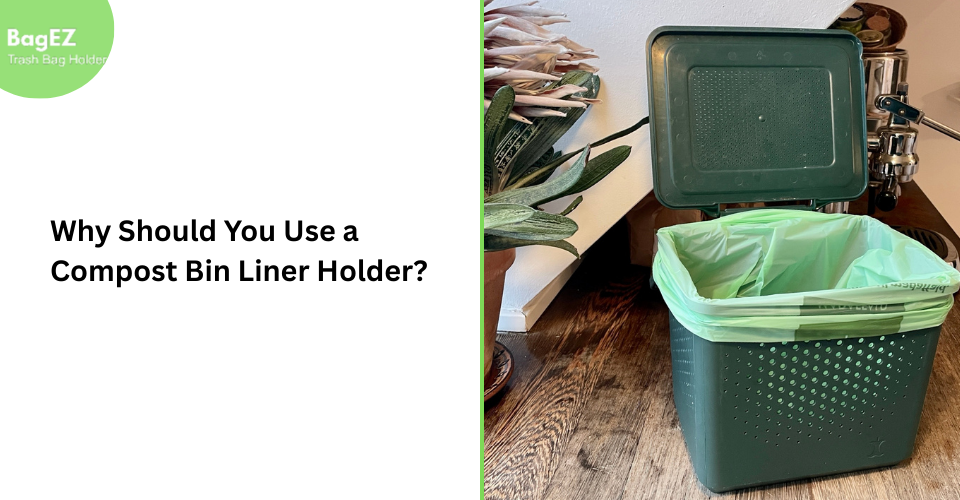The contemporary domestic living practices balance between convenience and eco-friendly awareness. Trash bags are designed traditionally to hold the refuse in place but by so doing, they add the matter to the mass in the landfill as well as create micro plastic pollution. In saunter Bagez, an innovator in green waste.
Their bags are biodegradable Bagez bags that come with a combination of toughness and environmental friendliness, bringing a mere interchange that results in a whiter, cleaner home. Here is an article to learn more about how those innovative liners work, what environmental changes they imply, and useful hints as to how to implement them into your everyday life.
1. What is important about Biodegradable Bags?

a. The Plastic Crisis
Nonetheless, each year the earth is overwhelmed with billions of regular plastic liners that could spend hundreds of years in landfills, until they get disintegrated into tiny plastics: clutters the earth and waterways. The desire of consumers to find an alternative that will reduce their ecological prints and are not worse in performance is growing.
b. Bagez Delivery of Sustainability
Bagez bags break down in 180 days in the conditions of industrial composting using plant-based polymers which are used to manufacture the bags. Contrasts with single-use plastic, these liners break down into unpolluting materials, such as water, carbon dioxide, and biomass.
2. The Science of the Biodegradable Bagez Bags
a. Plants Based Resin Blends
Bagez makes use of a secret mixture of Cornstarch derived polyesters and certified compostable additives. This material resembles both the strength and flexibility of the traditional plastics but can be completely broken down in standardized facilities.
b. Multi‑Layer Strength
Bagez liners are durable even though they have eco credentials. A strengthened tri-layered construction is puncture and tear resistant; an essential feature when managing kitchen food scraps, pet waste and yard waste, and does not leak.
c.Certified Compostability
Each and every of the All Bagez biodegradable bags has an ASTM D6400 (USA) and EN 13432 (Europe) certification. Such strict requirements ensure that the product fulfils disintegration, biodegradation rate and non-toxic residue criteria.
3. Environmental Benefits
|
Impact Metric |
Conventional Plastic Liners |
Biodegradable Bagez Bags |
|
Time to Decompose |
500+ years (microplastic risk) |
180 days in industrial compost |
|
Greenhouse Gas Emissions |
High (fossil feedstock) |
Lower (renewable plant materials) |
|
Landfill Volume |
Permanent waste |
Reduced volume as they convert to biomass |
|
Toxic Residues |
Microplastics, additives |
None (certified eco‑safe) |
|
Resource Source |
Petroleum |
Corn, sugarcane, other renewable crops |
|
End‑of‑Life Disposal |
Landfill/incineration |
Industrial composting |
By switching, households dramatically cut long‑term plastic pollution and greenhouse‑gas emissions.
4. Performance That Outperforms
a. Leak and Tear Resistance
In laboratory tests, Bagez biodegradable liners withstood weights of up to 40 lbs of organic waste without puncturing—matching or exceeding many standard trash bags.
b. Odor Control
An integrated microbarrier layer traps organic odors, keeping kitchens and bins smelling fresh even when storing food scraps overnight.
c. Ease of Use
These bags fit standard bin sizes (8, 13, 30 gallons) and feature reinforced drawstrings for secure closure and easy handling—no double‑bagging required.
5. Practical Tips for Home Composting
-
Separate Your Waste: Use Bagez liners in a kitchen pail for food scraps, while recyclables and dry waste go into other bins.
-
Collect in a Compost Bin: When the liner is full, transfer both bag and contents into an industrial composting drop‑off. Bagez will break down alongside the organic material.
-
Avoid Backyard Composting: Home piles may not reach sufficient temperatures to fully degrade the liner; certified facilities ensure complete composting.
-
Combine with Green Initiatives: Pair Bagez bags with reusable produce bags, refill stations, and plastic‑free household products for maximum sustainability.
6. Cost and Convenience Comparison
|
Factor |
Conventional Liners |
Biodegradable Bagez Bags |
|
Unit Cost |
$0.10–$0.15 per bag |
$0.20–$0.30 per bag |
|
Required Quantity |
Often double‑bagged |
Single bag suffices |
|
Cleaning Frequency |
Frequent bin washes |
Less frequent due to anti‑odor barrier |
|
Environmental Impact |
High |
Minimal waste, compostable |
|
Consumer Peace of Mind |
Low |
High (certified eco‑friendly) |
While unit costs are slightly higher, overall savings emerge by avoiding double‑bagging, reducing cleaning time, and supporting eco‑initiatives.
7. Customer Testimonials
“Swapping to Bagez was simple—and our bins haven’t smelled once since. I love that I can compost the bag too.”
—Meera P., urban apartment dweller
“I was skeptical about strength, but these liners held heavy food waste without a single tear. And I feel better about the environment.”
—James L., family of five
“My commercial kitchen switched to Bagez biodegradable bags and now composts everything. It’s a game‑changer for our green certification.”
—Chef Aruna S., restaurant owner
Transforming your trash routine is one of the easiest wins for home sustainability. With biodegradable Bagez bags, you get all the strength and convenience of conventional liners—without the long‑term environmental toll. By choosing Bagez, households and businesses alike reduce plastic waste, curb odors, and participate in the circular economy.
Ready to make the eco‑friendly jump? Explore the full Bagez range at bagez.com and turn every trash bags exchange into a step toward a fresher, greener home.

